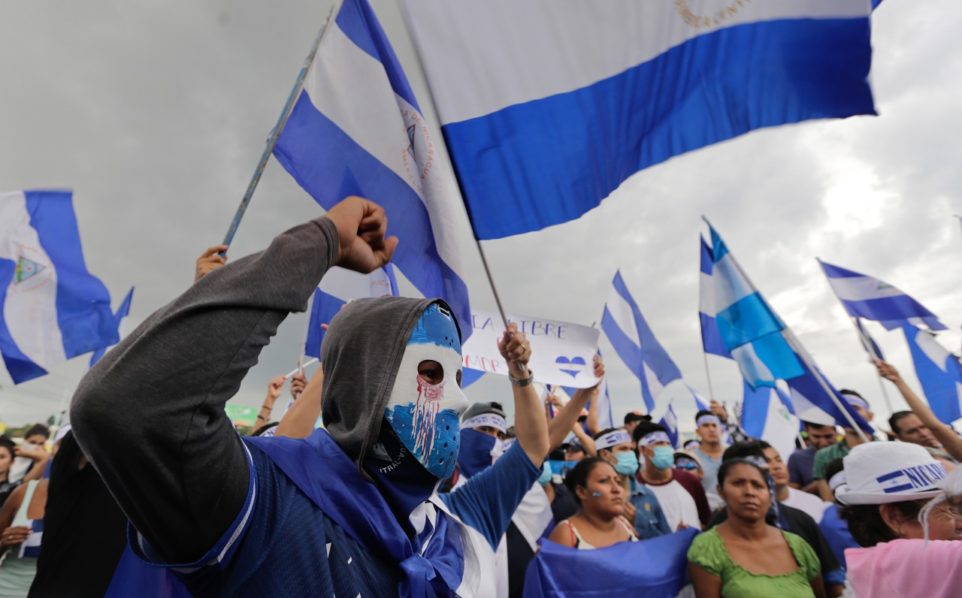
A Nicaraguan government employee was killed and three other people injured over the weekend, officials said Sunday, the latest casualties of deadly political unrest that has wracked the Central American nation for more than a month.
The deceased, one Jorge Gaston, died in hospital after being shot Friday, police spokeswoman Vilma Gonzalez said, attributing the killing to “criminal acts committed by vandalism groups.”
The opposition meanwhile said he was a victim of the government forces that had attacked protesters the same day.
The fatality brings to 84 the number of people killed since protests began on April 28, while more than 860 have been wounded, according to humanitarian groups, police, and relatives of victims.
Initially triggered by now-aborted reforms to the near-bankrupt social security system, the unrest broadened into a rejection by many Nicaraguans of President Daniel Ortega and his wife, Rosario Murillo.
Ortega, a former Sandinista guerrilla who first ruled between 1979 and 1990 before returning as president 11 years ago, had kept power by maintaining leftist rhetoric while ensuring an accommodation with powerful private industry and keeping up trade with the United States.
Demonstrators have voiced frustrations over corruption, the autocratic style of Ortega and Murillo, limited options to change the country’s politics in elections, and the president’s control over Congress, the courts, the military and the electoral authority.
Church-mediated talks aimed at quelling the violence have stalled since last week, but the Nicaraguan Bishops’ Conference called on Sunday for both sides to attend a session on Monday aimed at reviving the dialogue.
[ad unit=2]



